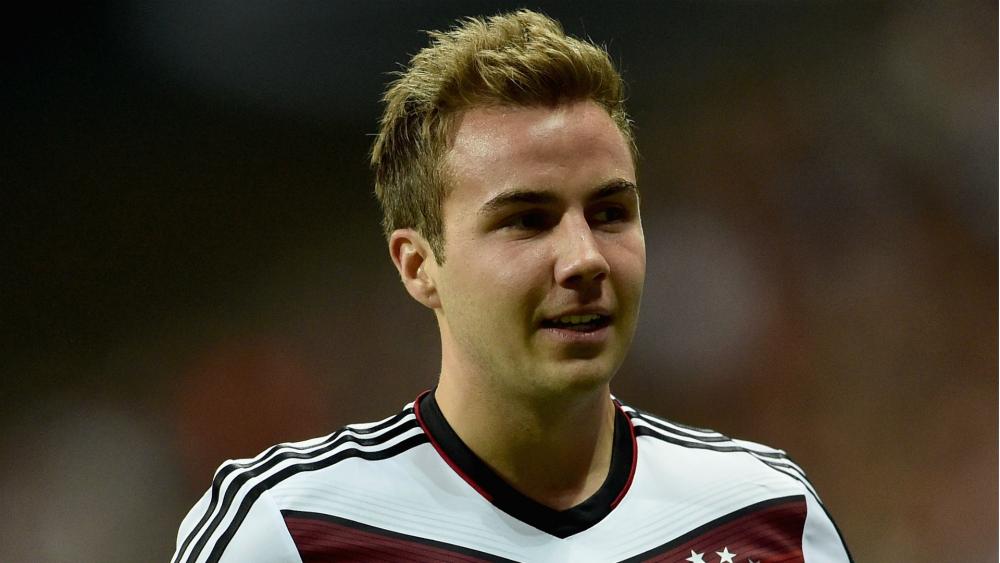Paul Pogba – Fergie’s biggest mistake in 26 years?
FourFourTwo's Jonathan Fadugba assesses a new name in this year's Top 100, but one you should get used to having around. Manchester United's one that got away...
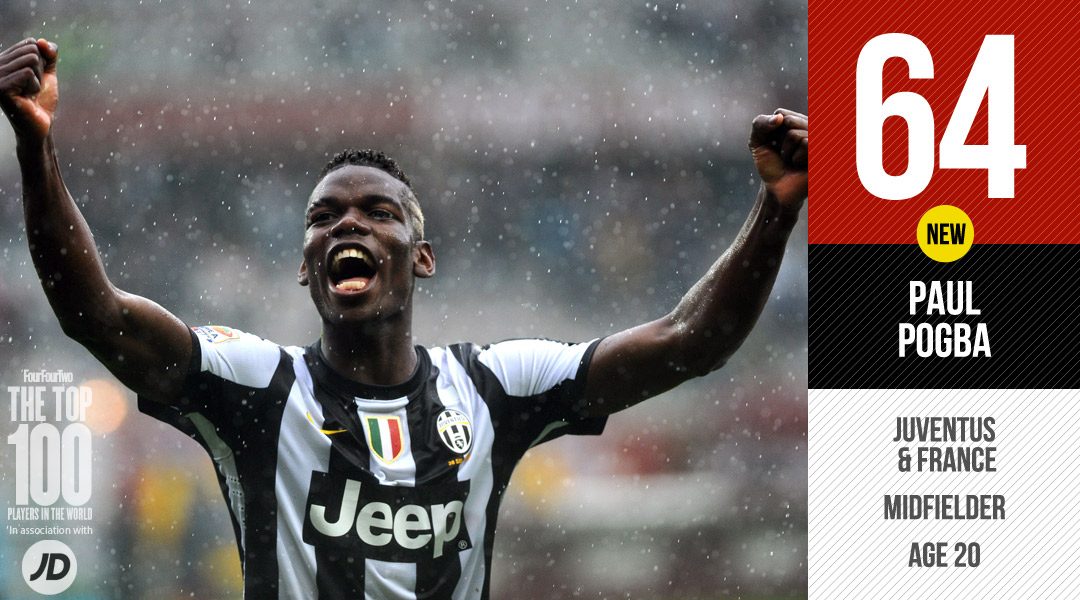
There is not a single mention of Paul Pogba in 350 pages of Sir Alex Ferguson’s autobiography. This is revealing, because it likely means one of two things: either Pogba didn’t register in the former Manchester United gaffer’s mind, the circumstances around the 20-year-old’s departure from Old Trafford deemed not worth dwelling on or explaining. Or, alternatively, Ferguson made a specific and conscious decision not to mention it.
To this day, the circumstances surrounding Pogba’s departure from United remain unclear. Did he jump or was he pushed? Did an agent purr sweetly in his ear or was the prospect of a sack full of money lure enough?
The general feeling is Ferguson can take no blame here. Negotiations took place but nothing happened. “From what I’ve heard a situation was cooked up and I’m not sure that we could have done anything different to how we played our cards,” says United’s executive vice-chairman Ed Woodward in the new United We Stand fanzine. “It was a stacked deck.”
That Pogba is hungry for the spotlight is obvious. The blond highlights in his extravagant hairstyle give it away as much as the sheer restlessness of his career to date, from Torcy to Le Havre to Manchester United and now Juventus. But does Pogba want the money and the fame as a means in itself, or is there a bigger picture here, a purer desire?
The clearest answer to that came in one of his earliest interviews in Turin. “Juve can help me to realise my dream of becoming the best player in the world,” a 19-year-old Pogba told RMC, barely a few months after joining.
It’s an ambition he has repeated many times since, a burning desire that has become virtually a staple feature of any media appearance. “My wish, my dream, the fixed objective since Roissy-en-Brie (his first club) is to be the best.” In his own mind, Pogba has a date with destiny. And he plans to get there early.
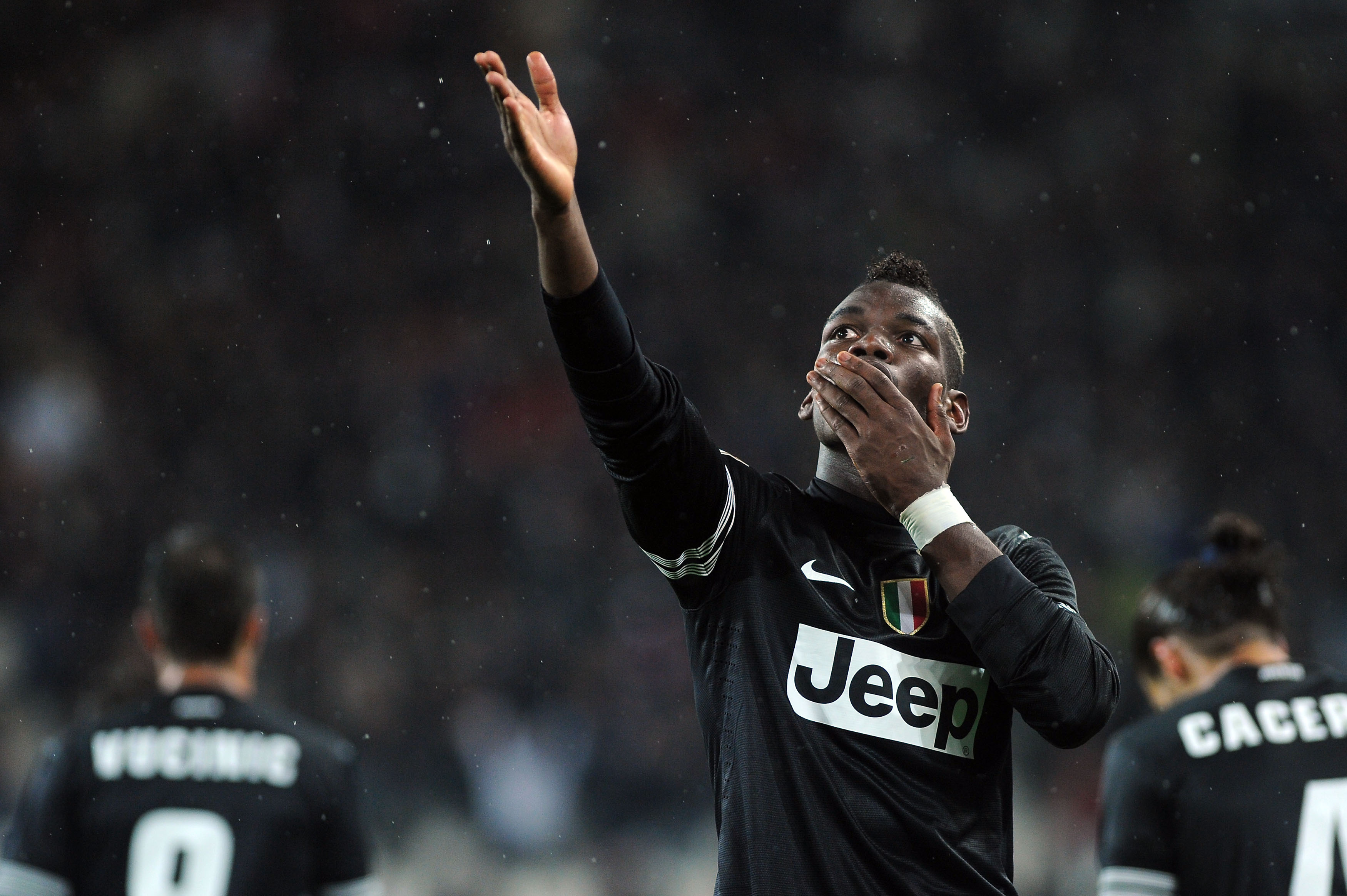
Ferguson had a plan to integrate Pogba into United’s first team, but you can only keep a Kalahari leopard caged for so long. Pogba escaped. But his departure from United is, ultimately, by the by. United fans can weep all they like, lamenting what might have been. Pogba wears the white and black of Juventus now. And he wears it with consummate style.
Get FourFourTwo Newsletter
The best features, fun and footballing quizzes, straight to your inbox every week.
It’s difficult to know where to begin when describing Pogba’s precocious talent. Scouts often say that when you see a great player for the first time, you don’t base it on any rational analysis. You just know. Ferguson touched on this unique thrill in his autobiography when he discussed seeing Cristiano Ronaldo for the first time.
“One night I was watching a movie, White Fang, the Jack London book about going to Klondike in search of gold. That’s what it must be like for a scout. You’re standing watching a game on Saturday morning and you see a George Best, a Ryan Giggs or a Bobby Charlton. That’s what I felt that day in Lisbon. A revelation.”
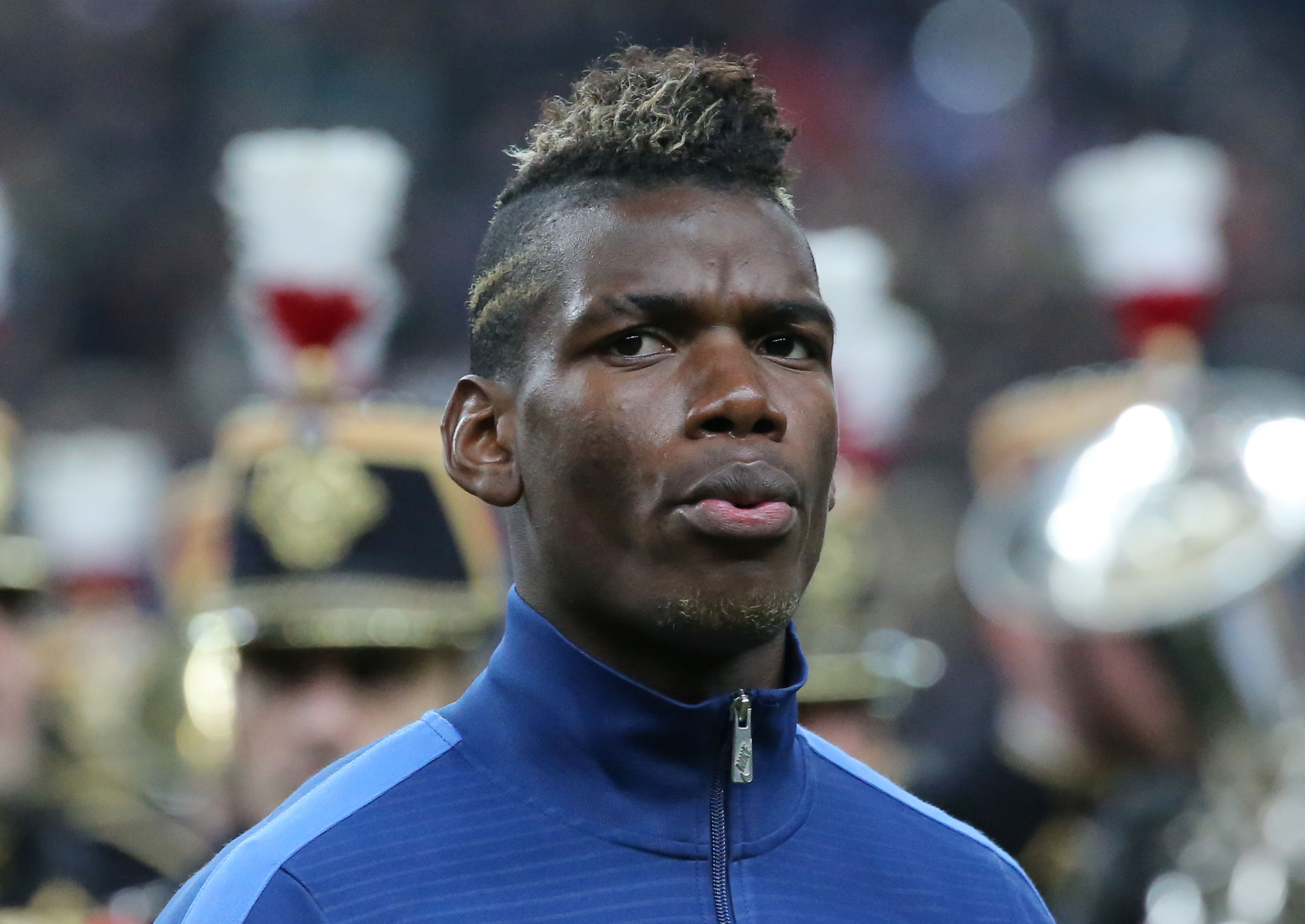
A tall, rangy midfielder with a peacock-like strut, Pogba possesses perhaps the rarest quality in football. You watch him and you can already see the future. All the game’s greats have it: that element of untold promise, a sort of suspended anticipation, an excitement at the many years of joy to come.
Frank Rijkaard experienced it with Lionel Messi. "From the moment Messi was introduced, we all knew he was a unique talent," he told Sport. "I remember Deco and Ronaldinho immediately realised how special he was, and they took him under their wing.” Maradona tells the story of how his youth team, Los Cebollitas, lost the final of the Nacional championship to a team from Pinto, managed by a man called Elias Ganem. “When his son, Cesar, saw how upset I was he came up to me and said: ‘Don’t cry, brother, you’re going to be the best in the world.’”
Watching Paul Pogba provides that same feeling.
Some of the game’s greatest midfielders have said it. “He is a warrior with a good spirit,” said France boss Didier Deschamps (a distinguished midfielder himself) of the man he handed a first senior cap earlier this year. “He has everything it takes.”
Antonio Conte knows a thing or two about playing in midfield. He won five Scudettos and the Champions League playing at the heart of Juventus’ midfield, and he’s another who is certain of Pogba’s immeasurable promise.
“Pogba is a modern player, as he is strong, fast and has stamina,” Conte raved in August. “He’s also humble, so listens to the advice given by me and by his team-mates. I saw his interviews in which he said he wanted to become the best in the world. I am happy with that, because in my view he can be the best.”
Patrick Vieira is another to bow at the altar of Pogba love. The former Arsenal man won 107 caps for France, but told L’Equipe that the man dubbed his heir in the French midfield is “more offensive than me and perhaps better technically. I saw him play for Manchester United. That Manchester City did not take him when he left was a mistake because he is an extraordinary player.”
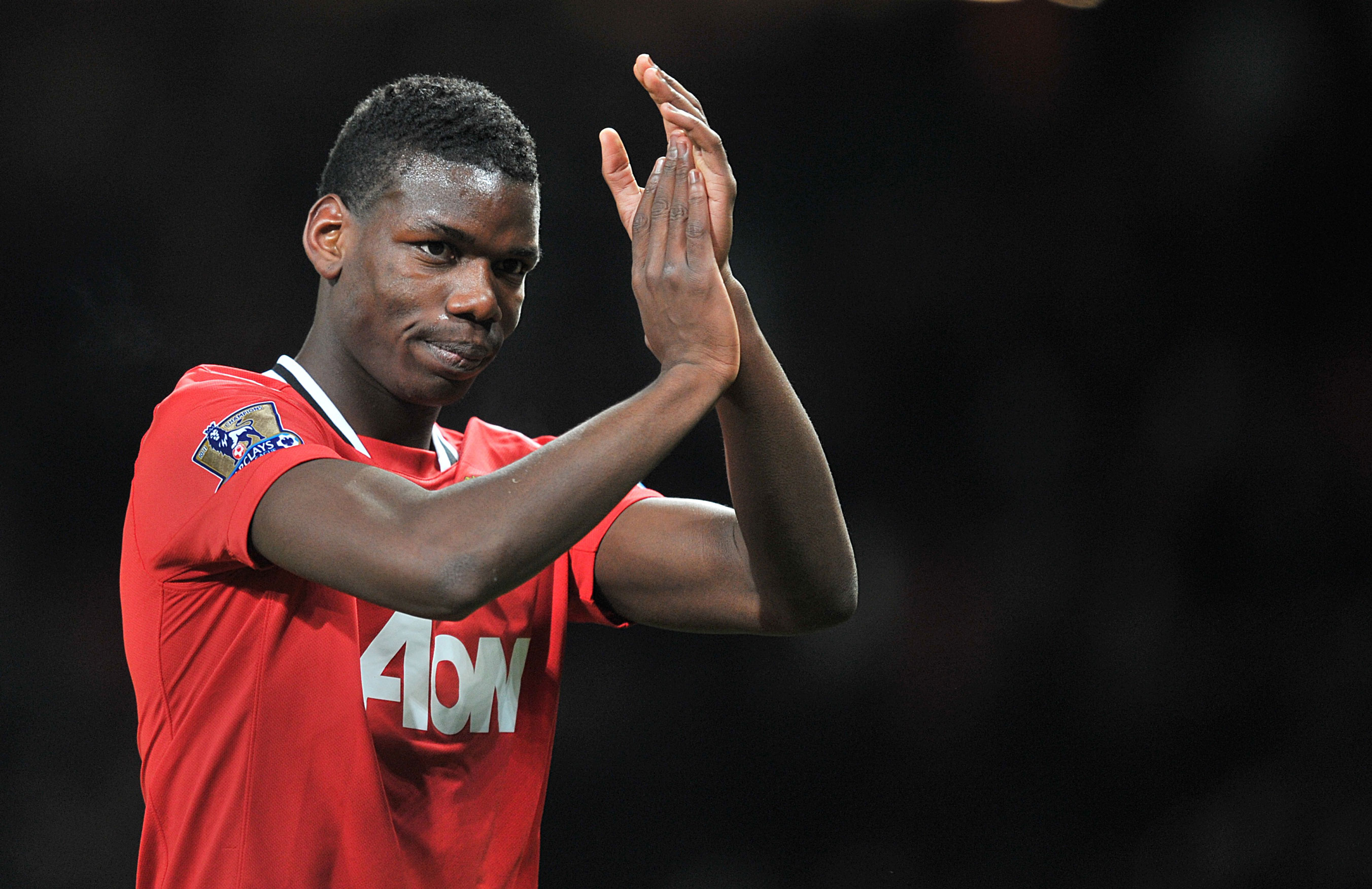
Such high praise is not without merit. There are countless examples of the ability of the 6ft3in starlet nicknamed ‘Il Polpo Paul’ (Paul the Octopus).
It was obvious at youth level when the teenager helped guide France to the 2009 Aegean Cup with a goal in the final. It was obvious at Under-20 level, when Pogba captained a talented new generation of French players to the Under-20 World Cup final, where they won on penalties. He played within himself, in fairness, with a casual nonchalance that suggested he knew he was too good for that level but wanted to be there anyway. In a way that was what made his performances so impressive. He won player of the tournament.
It was obvious, too, when he came on wearing the number 42 shirt for Manchester United on his Premier League debut, in a 2-0 win over Stoke in 2012. Immediately, Pogba demanded the ball from Paul Scholes. In 18 minutes he whipped in three dangerous crosses and bamboozled Dean Whitehead with a wonderful turn and shimmy down the right hand side. The Old Trafford crowd applauded the skinny teenager standing before them, strutting around with the chest-out confidence of his compatriot Eric Cantona. They knew.
Pogba’s beautiful technique, athletic presence and charisma on the ball hint at a player who could be at the top of his game for years to come. He can play as an offensive midfielder or in a withdrawn, more defensive role, although he doesn’t quite have the discipline needed to play in that position at the highest level yet.
His shooting is exceptional, as demonstrated by an array of brilliant goals for Juve, and he can either build or destroy, with strength in the tackle and a great eye for a pass. He’s also clearly a leader, the man France’s U-20s looked to time and again as he cajoled, instructed and geed his players, leading the goal celebration dance routines with glee. His vast well of self-confidence and willingness to assume responsibility screams captain material.
Of course, as with any 20-year-old, there is a way to go before Pogba can truly be considered one of the best players in the world. But with every single-minded interview he gives about wanting to be the best and every 20-yard thunderbolt he rifles into the net of an unsuspecting Serie A keeper, the conviction grows.
It is almost impossible to watch Manchester United labour in midfield and not conclude that the man they really need in there is the one they let go.
Paul Pogba may have made the FFT Top 100 for the first time, but you suspect seeing his name at number 64 will not satisfy him. The caged leopard is free. And he wants to rule.
